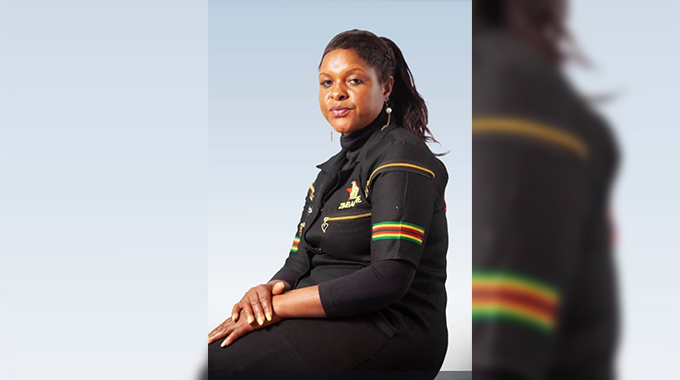Goat population surges in Matabeleland South

Sukulwenkosi Dube-Matutu, Matabeleland South Bureau Chief
FARMERS in Matabeleland South province have intensified commercial goat breeding activities which has seen the number of goats in the province rising to 700 000.
Through the US$87 million Presidential Goat Scheme recently launched in Chipinge, Manicaland Province, President Mnangagwa has made it clear that it is no longer business as usual in the goat value chain as the country seeks to build a strong goat production and marketing system.
The goat scheme, which will see the national herd jumping from 4,3 million to six million by 2025, will also unlock vast export opportunities for farmers.
Most of the farmers in Matabeleland South are into breeding cross breeds of the Boer and indigenous Matabele goats, which adapt well to the environment in the province, a semi-arid region.
The indigenous goat breeds are those naturalised in an area. They are synonymous with certain regions and are to a large extent unimproved.
The Matabele goats are generally found in Matabeleland South and Southern parts of Masvingo provinces. They are large framed goats, with does that weigh between 30-50kg and mature bucks that can weigh up to 55kg on average.
Matabele goats produce very nice progeny which look like Boer goats. Because of their large frame sizes they are spreading very fast in most regions of the country where they are being cross-bred with the Mashona goat and other imported breeds such
Kalahari Red and Boer goats.
They have tasty meat which is preferred in lucrative South African markets.
The villagers are operating these projects in groups. They sell their goats to community members and various institutions. They also sell the goats for breeding purposes, which has helped them generate income.
Amohelang Group in Selonga Village has about 200 goats. The group comprising 14 members was formed in 2015.
Presently, they are rearing Boer-Matabele cross breed and hope to introduce the Kalahari breed as it has good traits suitable for their climate.
The farmers follow a systematic breeding pattern, which has helped preserve and protect their flock. They also keep shepherd dogs which accompany the goats to protect them from being attacked by predators
The project members take turns to watch over the goats as they graze to ensure that they are protected.
Amohelang project group leader, Mrs Sibongile Dube said the training they received helped them to boost their flock.
“We started off the project with nine members in 2015 and we contributed one goat each. We started off at a slow pace as we didn’t have much knowledge on goat breeding,” she said.
“We have received valuable training that has helped sustain our project and to grow our flock. We learnt about the importance of dipping and dosing our goats regularly to protect them from diseases.”
Ms Jelita Siziba, who is the chairperson of Zithuthukise in Ward 13, said their project is still in its infancy with 14 goats.
She said during the rainy season they ensure that their goats are kept in an enclosed area so that they don’t contract diseases.
Ms Siziba said they grow feed to supplement browse for the animals.
“We started off with six goats in 2019 and now we have 14. These goats have helped us to sustain our families. When any of the group members are facing financial challenges such as payment of schools fees, we sell a goat to raise the money,” she said.
“Unlike in the past when we used to rear the goats without paying much attention, we now know the importance of commercialising them and it has paid off. If a single goat or kid dies it becomes a huge loss for us.”
A member of Vukuzenzele Group in Kafusi Village, Mr Thando Khumalo, said their project has 24 goats. He said they have shifted from the traditional way of rearing goats to the commercial one, which entails keeping the animals in a decent shelter and providing them with nutritious food.
Acting provincial director of agricultural rural development and advisory services for Matabeleland South, Mr Mkhunjulelwa Ndlovu said there is a great improvement in the genetics of goats that were found in the province.
He said a number of small holder farmers have formed groups for the purpose of breeding goats.
“Goat breeding has improved in the province as we now have over 700 000 goats. There is now good husbandry of goats and farmers are dipping their goats, constructed good shelter for the animals to protect them from rain and are also growing fodder for their goats,” he said.
Mr Ndlovu said unlike in the past when goat farmers didn’t give much attention to their livestock, they have now transformed their way of doing things.
“This has been made possible because of capacity building workshops conducted by our extension officers. Farmer field schools and field days have also come in handy as they have helped to motivate farmers,” he said.
“We also have various development partners who have come in and assisted farmers in starting goat projects and these have come in handy in alleviating poverty.”
Mr Ndlovu said farmers in Matabeleland South specialise in the Boer-Matabele cross breed which have a good frame, carcass, good weight and also drought and disease resistant.
“Our province is good when it comes to goat rearing because both the weather and vegetation are ideal. The demand for goat meat is very high and we are trying to organise the market for farmers so that they can realise good value for their animals,” he said.
“Goats are easy and cheap to breed and farmers have to take advantage of this by starting their goat breeding projects in order to have income.”
Mr Ndlovu said most of the goats are found in Mangwe South, Gwanda South, Matobo South, Insiza South and Beitbridge.
With demand for goat meat increasing globally, the Presidential Goat Scheme has spurred the rearing of the livestock in local rural communities.
With a target to cover all three million rural households in the country, beneficiaries are being trained on goat rearing, best management practices and how goat production can be taken as a business.
The Presidential Goat Scheme is targeting more than 600 000 farmers nationwide and seeks to ensure food security and empower communities across the country.
The scheme is among a raft of measures launched by the Second Republic in crop and livestock sectors to rapidly build the output and capacity of small-scale sectors and ensure the overwhelming majority of rural households are able to enter the commercial sector.
Under the full scheme, 35 000 bucks and 597 000 does will be distributed in all villages.
The bucks are being assigned as three for each chief, two for each headman and one to each village head, and then the females are distributed to the villagers. @DubeMatutu












Comments